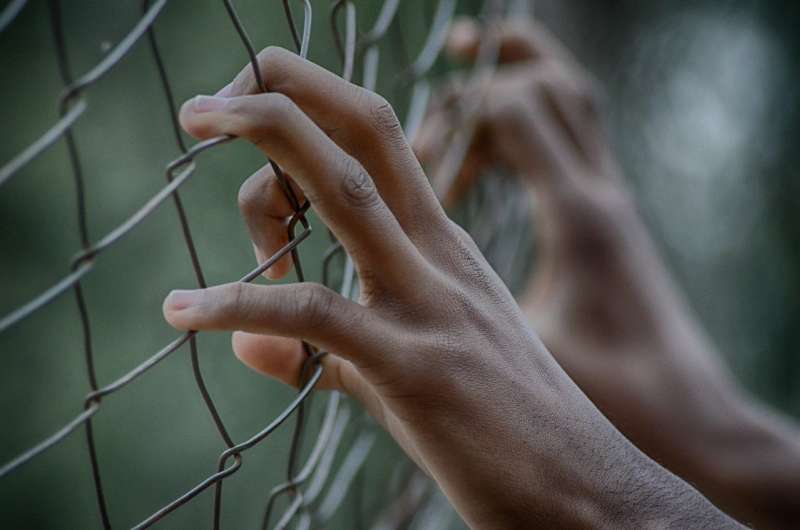Credit: CC0 Public Domain
A new online toolkit has been designed by experts to help organisations tackle modern slavery in their local communities.
Throughout the UK, many different organisations are working hard to prevent slavery, promote the identification of victims, offer support to survivors and to ensure slavery can't flourish.
Now, experts from the Rights Lab at the University of Nottingham and the UK's Independent Anti-Slavery Commissioner (IASC) have designed an online toolkit to help local organisations and agencies to tackle modern slavery by working together.
The toolkit was developed in response to research carried out in 2017 by experts from the Rights Lab and the IASC office, which showed that although multi-agency partnership work was developing across the UK, it lacked consistency and resources. There was also a lack of monitoring and evaluation of what partnership activity was taking place and what constituted good practice.
Dr Alison Gardner, who led the research from the Rights Lab and helped to develop the toolkit, said: "Local partnerships play a vital role in tackling modern slavery and we hope this toolkit will help them improve the vital work they are already doing.
"By putting together a checklist to help agencies review what activity is already taking place in their areas, a governance library to improve performance, and access to a UK Training Library - plus a range of other information, we hope that agencies will be able to see where they have gaps they need to fill and how they can improve their current working practices."
The Rights Lab is a University of Nottingham Beacon of Excellence that brings together over 100 scholars to deliver research that helps to end global slavery by 2030.
The toolkit is a free online website which includes:
- A partnership checklist – to help organisations to review their needs and highlight relevant resources available on the website
- A governance library – a library of sample documentation that can be used by different agencies to help formalise partnership working
- Downloadable resources – information to help with partnership working, such as how to plan an awareness campaign, engaging with different partners, or reviewing care plans
- Reports and legislations – a collection of up to date legislation and guidance.
- A UK Training Library - access to free training resources
Robin Brierley, Chair of the West Midlands Anti-Slavery Network, said: "The West Midlands Anti-Slavery Network and the Preventing Violence against Vulnerable People panel were extremely pleased to be asked to work on this toolkit together with the IASC and the University of Nottingham.
"Partnership working is instrumental in combatting all issues of modern slavery, but what is not so clear is responsibility for governance and accountability, who should fund partnerships and what success looks like.
"This toolkit will be of tremendous value in helping to explore these issues, not only for the Police, but all agencies whose work includes Modern Slavery and the wider exploitation of vulnerable people."
Kim Ann Williamson MBE of the CPS said: "I am excited that the UK approved modern slavery training now has the platform to be accessible to groups and organisations outside of the classroom environment.
"Working closely with the experts involved in this project has been really interesting, and has provided a fresh view of how we deliver training. The toolkit is a great example of how we can use technology to raise awareness of modern slavery."
More information: The toolkit can be found at iasctoolkit.nottingham.ac.uk/#
Provided by University of Nottingham






















